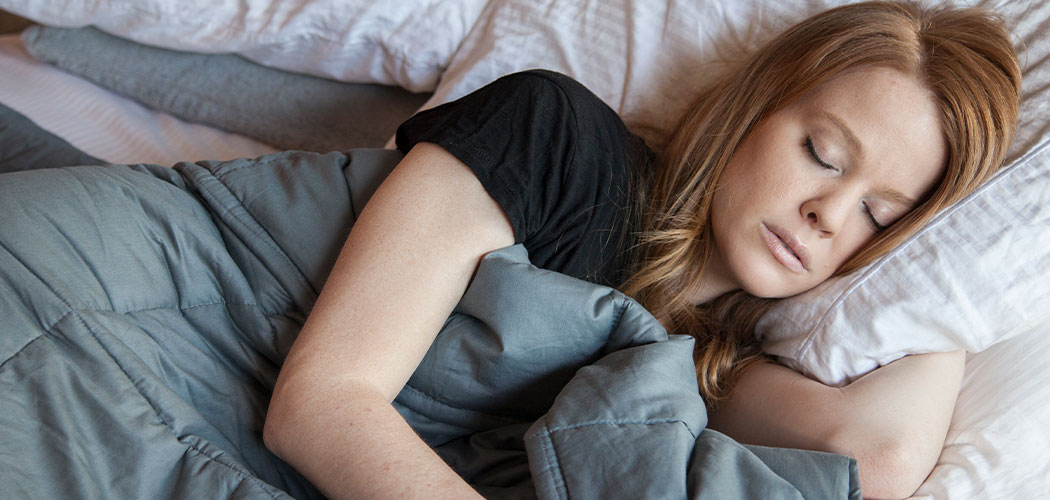Weighted blankets can help to improve sleep in adults with insomnia and other mental health conditions including anxiety and depression, but results are mixed for children, new research has found.
Led by occupational therapist and Flinders University researcher Dr Suzanne Dawson, the study found the blankets were effective in improving sleep, reducing medication use and enhancing mood.
The finding has since been behind a change in state-wide protocols for weighted blanket use across public mental health services in South Australia.
“Sleep is a basic human need and when someone isn’t getting enough, it can lead to numerous health issues as well as increase the risk of, or exacerbate, chronic conditions, including heart disease, stroke, and mental health issues,” says Dr Dawson, from Flinders University’s Caring Futures Institute.
“In occupational therapy, weighted blankets are becoming more common amongst many ages as an assistive technology, but no current clinical guidelines exist for their use.”
Published in the American Journal of Occupational Therapy, the authors looked at 18 existing studies that had investigated the use of weighted blankets overnight.
The review found significant evidence supporting the use of weighted blankets for improving sleep among adults.
“Weighted blankets seem to offer a tangible, non-drug intervention for improving sleep quality,” says Dr Dawson.
“Adults who used the blankets reported better sleep, reduced use of sleep medications, and even improvements in mood and pain management.”
Despite strong evidence for adult use, findings were mixed for the use of weighted blankets with children, with limited sleep improvements for children with conditions such as ADHD or autism spectrum disorder.
However, some parents reported positive outcomes from their use and some studies showed an improvement in children’s daily functioning, following use of a weighted blanket.
“Parents often reported that their children appeared more relaxed, less anxious, and more focused during daily activities when using the blankets, which could have a long-term impact on their overall well-being,” says Dr Dawson.
The authors note that for children, and adults with cognitive difficulties, any blanket used should be able to be easily removed by the individual themselves.
While the findings show overnight use of weighted blankets can be recommended for adults and trialled in children, the authors say the next step is to develop clear clinical guidelines for the blankets’ use.
“This scoping review was conducted to inform practice change and we are pleased that the findings were used to change the state-wide protocols for use of weighted blankets across public mental health services in South Australia,” says Dr Dawson.
“Blankets come in in various types, from containing beads or chains, and various weights, but as yet no standardised recommendations exist, including type, weight, frequency of use, or duration.
“While more rigorous research is needed to find their optimal use, use of weighted blankets should be further explored in practice.”








